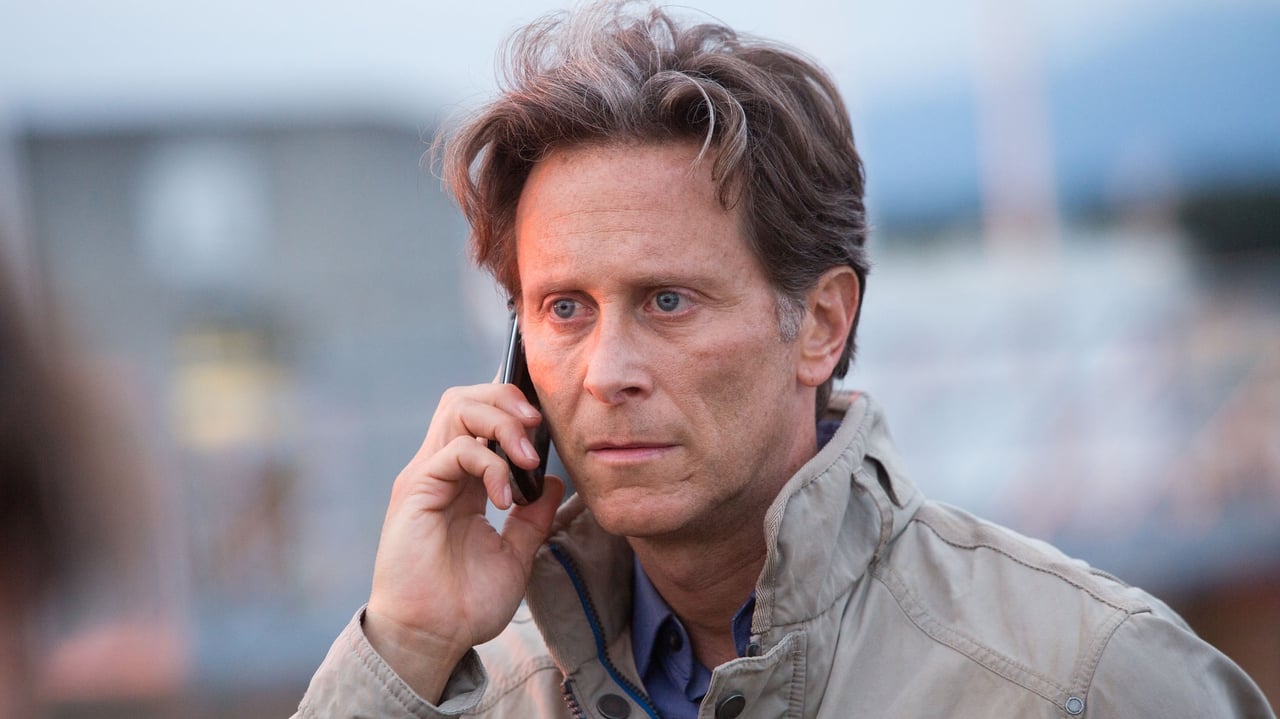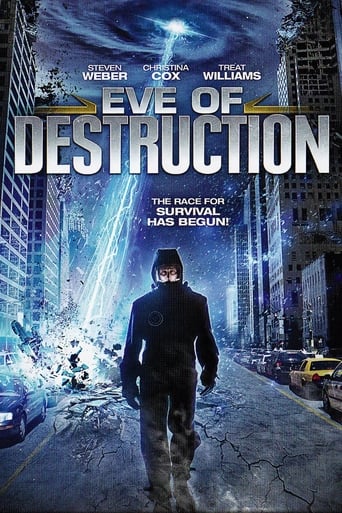Interesteg
What makes it different from others?
Ketrivie
It isn't all that great, actually. Really cheesy and very predicable of how certain scenes are gonna turn play out. However, I guess that's the charm of it all, because I would consider this one of my guilty pleasures.
Calum Hutton
It's a good bad... and worth a popcorn matinée. While it's easy to lament what could have been...
Zlatica
One of the worst ways to make a cult movie is to set out to make a cult movie.
Gin-ster
I see a lot of criticism here of the irrationality of the plot and its anti-science tone. I agree that the plot was irrational, and also, that the scientists didn't behave like real ones. Yet I don't mind the nonsensical nature of the threat - after all, isn't that always the case when disaster on a global scale is the threat? (i.e. mega-volcanoes, shift in earth's magnetic field, alien invasions, zombies, etc.?)It's always necessary to suspend disbelief or it's impossible to watch anything of this genre. As to showing scientists negatively, I didn't get that sense as much as showing an attack on the real villain here, "corporate greed." The driving force behind all the "wrong-headedness" was the corporate head of the project, played with scenery-chewing glee by Treat Williams. If I have any complaints about its political correctness, I'd say it also threw a barb at "occupy Wall Street" and Greenpeace, and the symbol of greed (i.e. Williams' role) had a Jewish name, which was admittedly something I had to keep overlooking.Why my relatively high rating? First, the surprisingly affecting back-story of the Russian lineman, along with good unusually good acting for this level of movie, by the Russian character, his wife, the lead scientist and the main protagonist, played by Steven Weber. His eye-rolling teen daughter was fairly well played too, given the clichéd nature of this role (you could interchange her with the daughter in "Under the Dome.") Also, and here is the real spoiler: did the world come to an end? Well, not entirely, but the lack of clarity on that was in itself unique (we only know that Denver, Paris, London and the Pyramids took direct hits) - so the lack of "finality" is unusual for this type of film. And on a related note, from the first 10 minutes I had been expecting the real villain, the corporate CEO played by Treat Williams, and the scientist who prostituted herself to him, to be zapped into smithereens by "dark energy," by the end of the film, as a sort of divine justice for their blindly going ahead with the project they knew to be destructive. So ... SPOILER SPOILER SPOILER big surprise, NOTHING happens to them. This is the long way of saying that despite a lot of apparent clichés, in the end, this was not your typical "B" sci fi movie - it was not all that predictable - and that is what accounts for my relatively higher ratings, along with surprisingly nuanced performances by some case members (i.e. Steven Weber) amidst some stock-villain types.
ThomasJeff
I love Christina Cox, her performances are always amazing and she's clearly the star of this show. However, the plot is nonsensical and irrational. The scenes are nice and special effects are not bad.But the biggest problem with this series is the PLOT and MESSAGE being sent to people that is completely the wrong message to send to people. Your typical UNORIGINAL Frankenstein message "Stop playing God, scientists!" This is by far the dumbest, anti-intellectual message movies/films have spread throughout the decades.Without spoiling anything... Scientists discover a source of energy but certain things happen that cause disasters and it simply logically doesn't follow why they would happen in other random areas. It also doesn't make sense that they can't just pull the plug. It further doesn't make sense why an evil CEO would risk jail time and possible catastrophic results just to not have a "bad quarterly review." A lot of plot holes are included in the movie, such as the Russian-sub-plot as to how something could be kept under wraps.Essentially the conclusion the filmmakers want you to draw is: Science is crazy, magical, and accidents "might" happen. Which is simply the antithesis of what science is about and accidents such as this never happen on this scale in scientific experiments by scientists. There's a reason they do pre-tests to pre-tests to tests, and in this film, they act like even those pre-tests can go wrong.The worst "energy-related disaster" in our REAL world, such as chernobyl, was because of engineers who didn't know what they were doing. It was because of lack of safety protocols, lack of computer automated systems, and outdated equipment that was UNDERFUNDED. That is the lesson to learn from Chernobyl, when you don't invest in a technology for increasing its safety standards.So if anyone thinks that they should draw the lesson of: "We shouldn't fund such experiments, we don't fully understand!" -- That is the incorrect lesson. The mere act of not-funding-something, is the lesson to be drawn from real life events like Chernobyl, because machines and systems get too old; protocols become outdated; and these technologies never improve and become safer.As for the "Don't play God" nonsense, why would God give humans the ability to do these things if he didn't want you to discover them? Or why would he allow millions of people to die, in such a "failed experiment" just to teach a simple lesson about that? It makes no sense logically or philosophically, and filmmakers should stop trying to create conclusions for their audience that they probably never even asked a philosopher about.
innocuous
But you have to love them.Sometimes you get movies that are well-written and challenging (e.g., "Primer"), but with budget effects and sets. Then you get "Eve of Destruction," which is exactly the opposite. Relying on 1960s "Star Trek" physics, this movie actually spent some time on locating or creating the sets, and the effects are not nearly as bad as some other reviewers would have you believe. And it is the ONLY movie I can recall where you get to see someone drill through a telephone pole. (It's always been simulated drilling in other films.)My favorite scene is when the two Nobel-laureate physicists decide the answer is to create a "denser vacuum." I'm pretty sure that they mean a vacuum with LESS average density or mass, since there's no vacuum existing at that time, but we get by that fairly quickly. And they never seem to question why using their apparatus to do something over HERE, makes bad things happen about two miles over THERE.My second favorite scene is when an eco-terrorist "occupy" movement is broken up by riot police. As far as I could see, there were exactly two riot police (though both of them were costumed very nicely).If I had a son and wanted to encourage him to go into physics, I would show him this film. It would go something like this:"See! All the women you meet will have really nice breasts and great cleavage.""But, Dad, they're all either evil or misguided!""Yes, which is why we need more male physicists."Check it out!
nowego
After sitting though this hoping it was going to improve or grab me in some way it is easy to see why the rating for this is so low.Very average disaster fare IMO.Nothing special to make you want to sit through 180 minutes of average special effects and average acting. I did it to be able to write this review. The "been there done that" memories were raging all the way through this, lots of standard good guy bad guy cliques.Bad guy greedy company owner tries to go against all the recommendations that they shouldn't to do what they want to do, small environmental protest group interferes and disaster ensures.Bad guys escape justice at last minute, good guys overt complete catastrophe and life gets back on track. Only 500,000 people we never see have died.The End.

